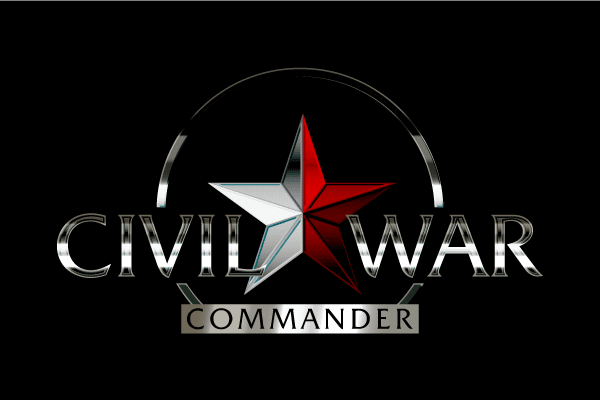Spanish Civil War 1936-1939
Betrayal and desperation. The hardest war Spain has ever faced.
"If I did compress what I know and think about the Spanish Civil War into 6 lines you wouldn't print it.
You wouldn't have the guts."
- George Orwell
You wouldn't have the guts."
- George Orwell
"Large size map and multitude of components yet not complicated at all; goes deep enough to satisfy any grognard, but it is still easy to play."
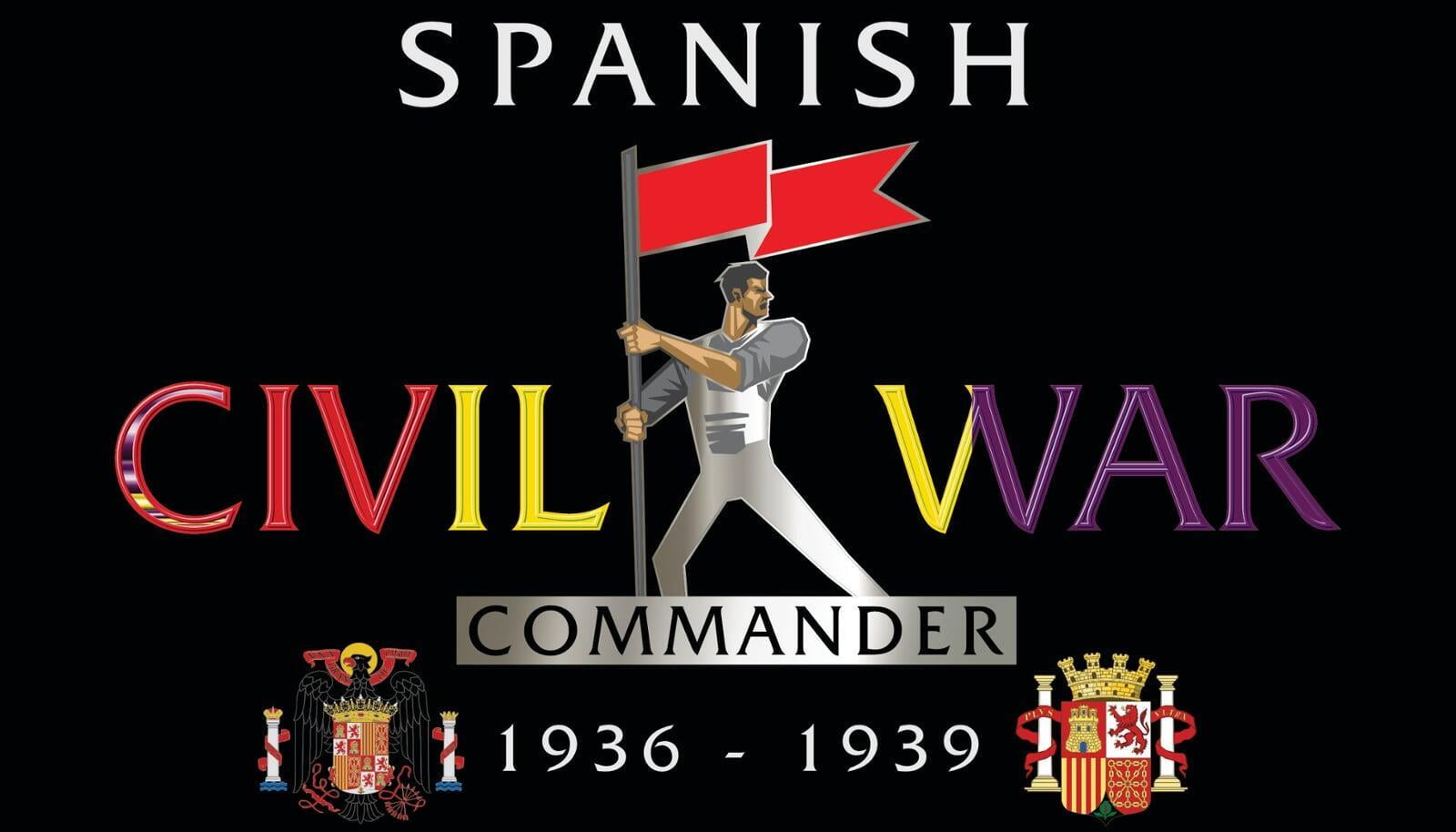
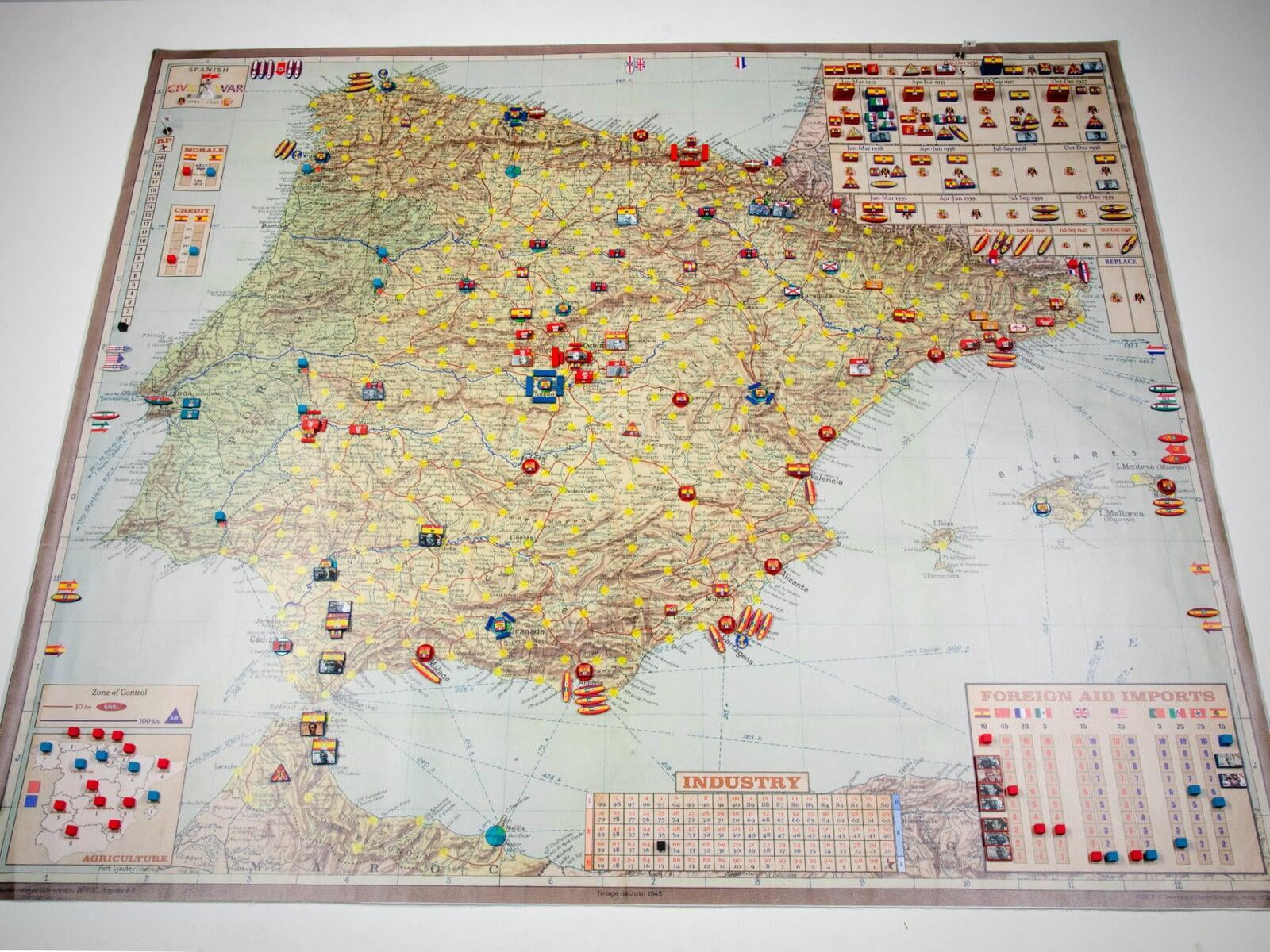
Your Challenge
Into which Civil War Commander's boots will you step? Republican or Nationalist?
Republican
- Can you mount a decisive offensive to break the back of the rebels?
- Will the North fight on and divert crucial enemy forces?
- Can you keep the nationalists from reaching the sea and cutting off Catalonia?
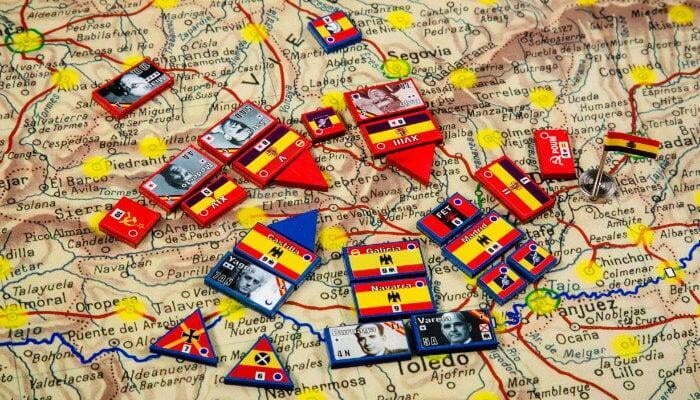
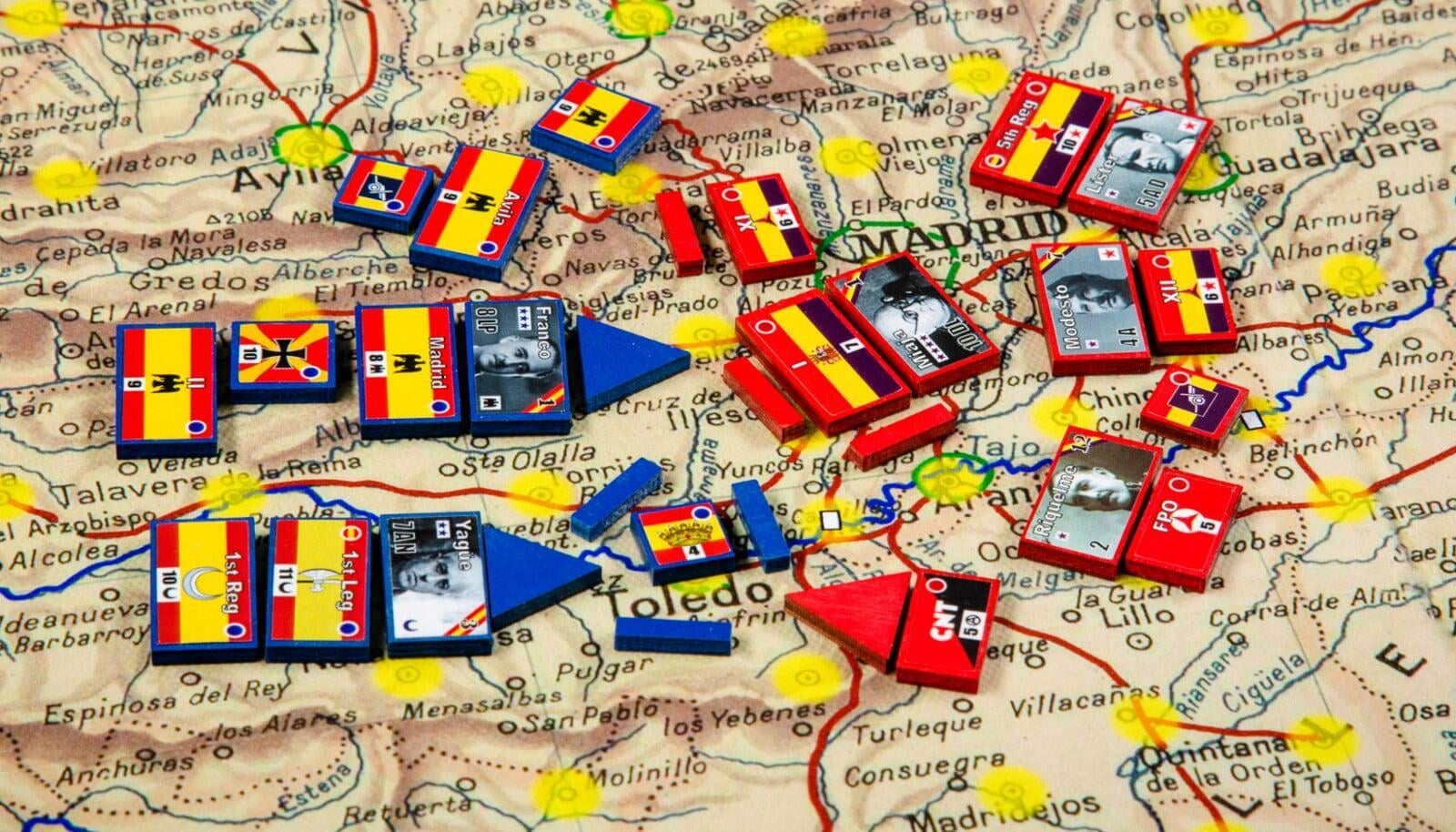
Nationalist
- Can the rebellion survive its initial numerical inferiority and form a command?
- Will you be able to capture Madrid early on and shorten the war?
- Can you anticipate the enemy’s next move and place your best troops in the right place in time?
GAME BOARD FEATURES
- 1-4 player game imitating the professional war gaming played by HQ staff officers.
- Large rolled canvas board with historical period map; highly detailed and educational.
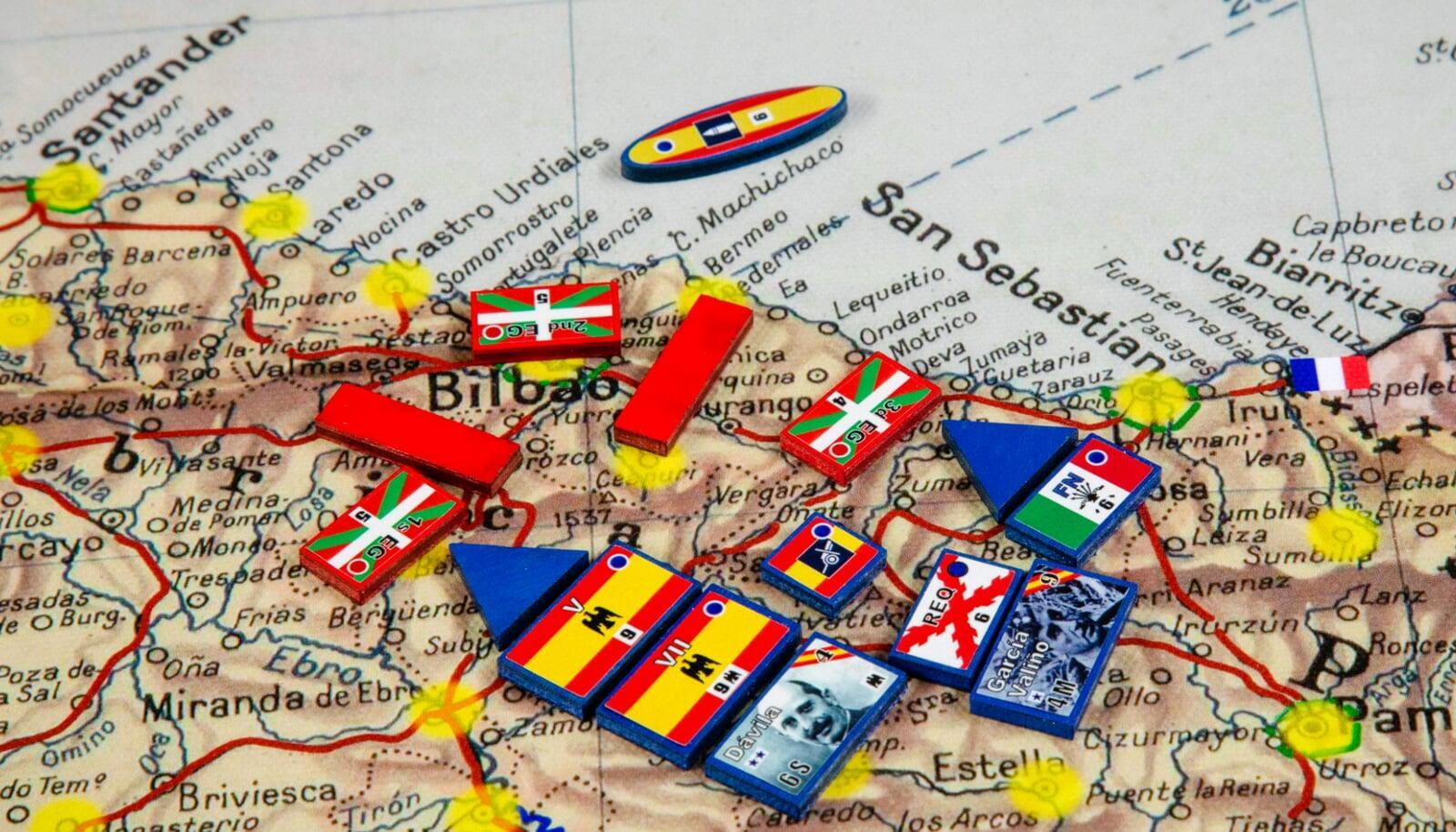
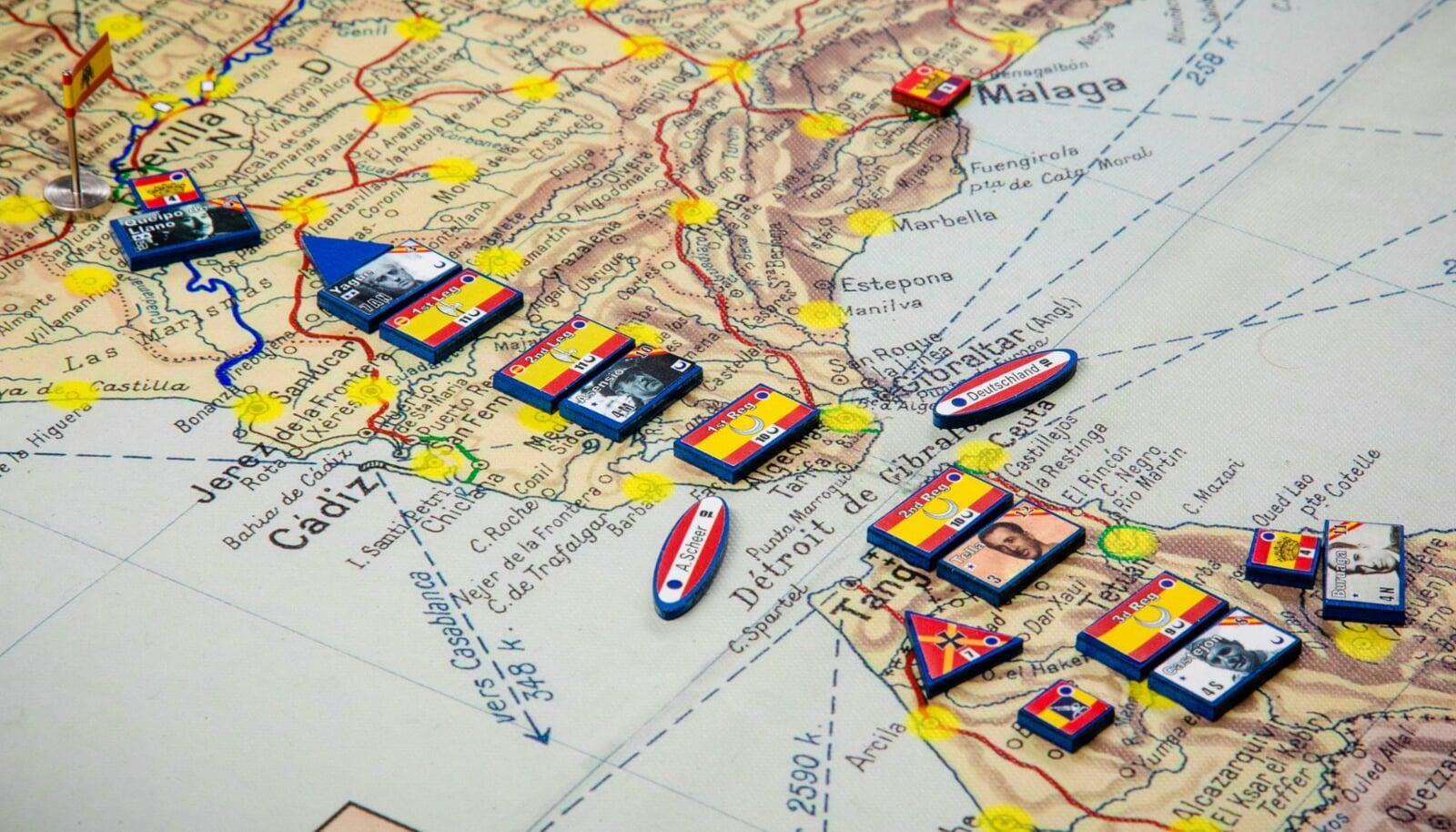
GAME-PLAY BALANCE
Excellent solitaire experience and high re-play value while maintaining historical content integrity.
While the action phase is highly competitive and entertaining, player choices will affect the economy heavily and, ultimately, the outcome of the war.
GAME PIECES
- Over 400 pieces with over 50 unique individual units.
- Premium laser cut Canadian birch wood counters.
- 35 commander chitswith individual qualities and promotion potential.
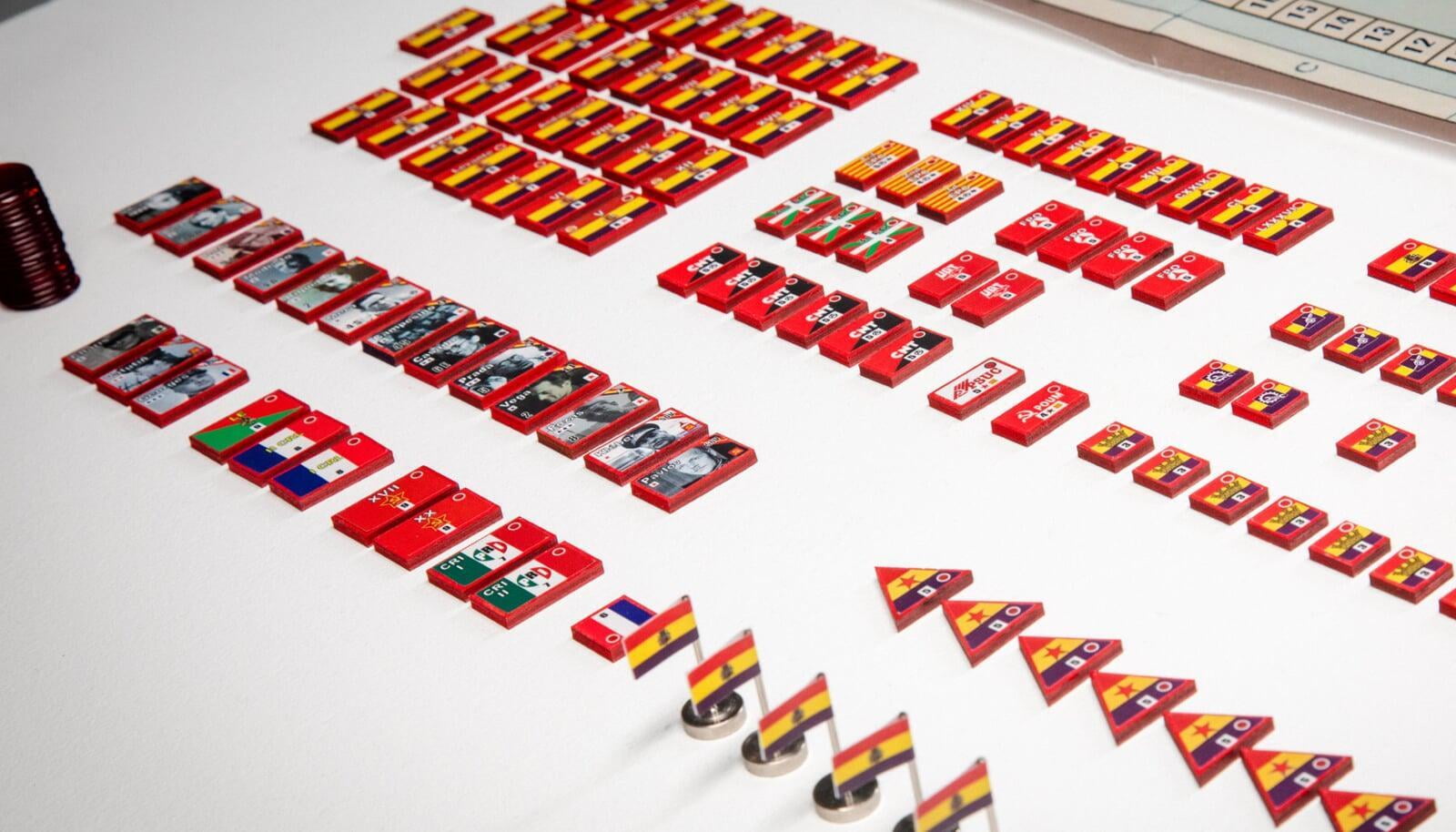
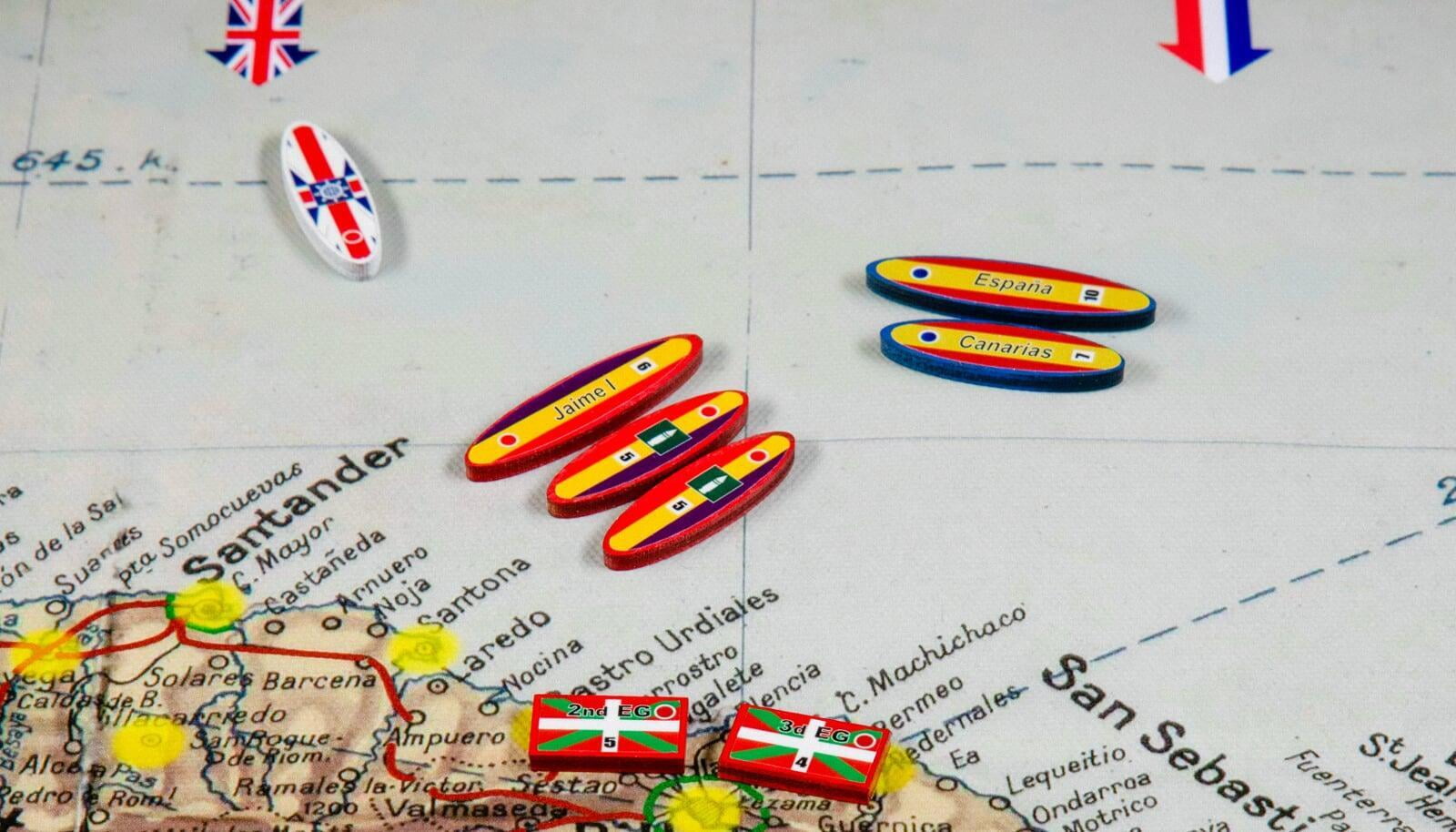
AIR and NAVAL COMBAT
Air combat and a dedicated naval phase with war ships and convoys - unprecedented in Spanish Civil War board games.
SPANISH CIVIL WAR CARDS
Original Spanish Civil War 54 card deck. Activatehistorical and fictional events.
Use deck separately for any card game.
Use deck separately for any card game.
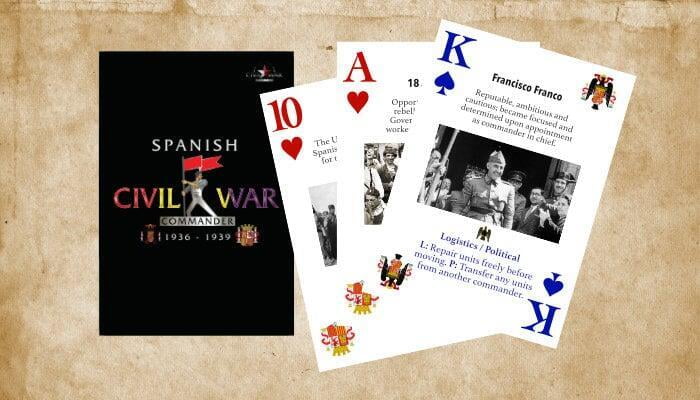
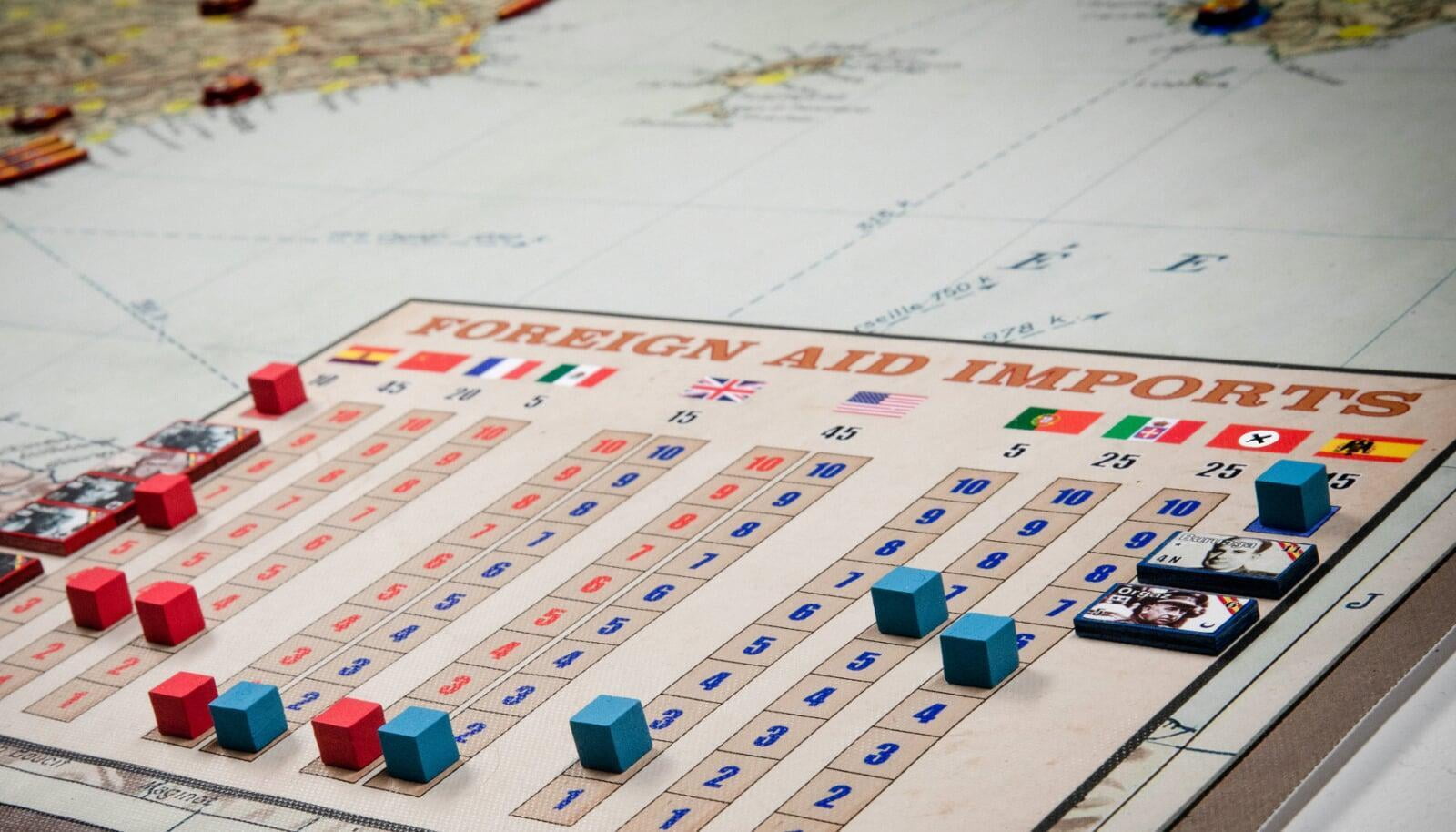
SPANISH CIVIL WAR ECONOMY
Industrial: based on cities captured.
Production: calendar controls deployment schedule.
Agricultural:food regions.
Imports: keep your convoy lifeline running.
Foreign aid: Without weapons from the fascists Franco can’t win. Without Stalin’s aid, the Republic hasn’t a chance.
Credit: rely on foreign banks to finance the war.
NATIONALIST UNITS
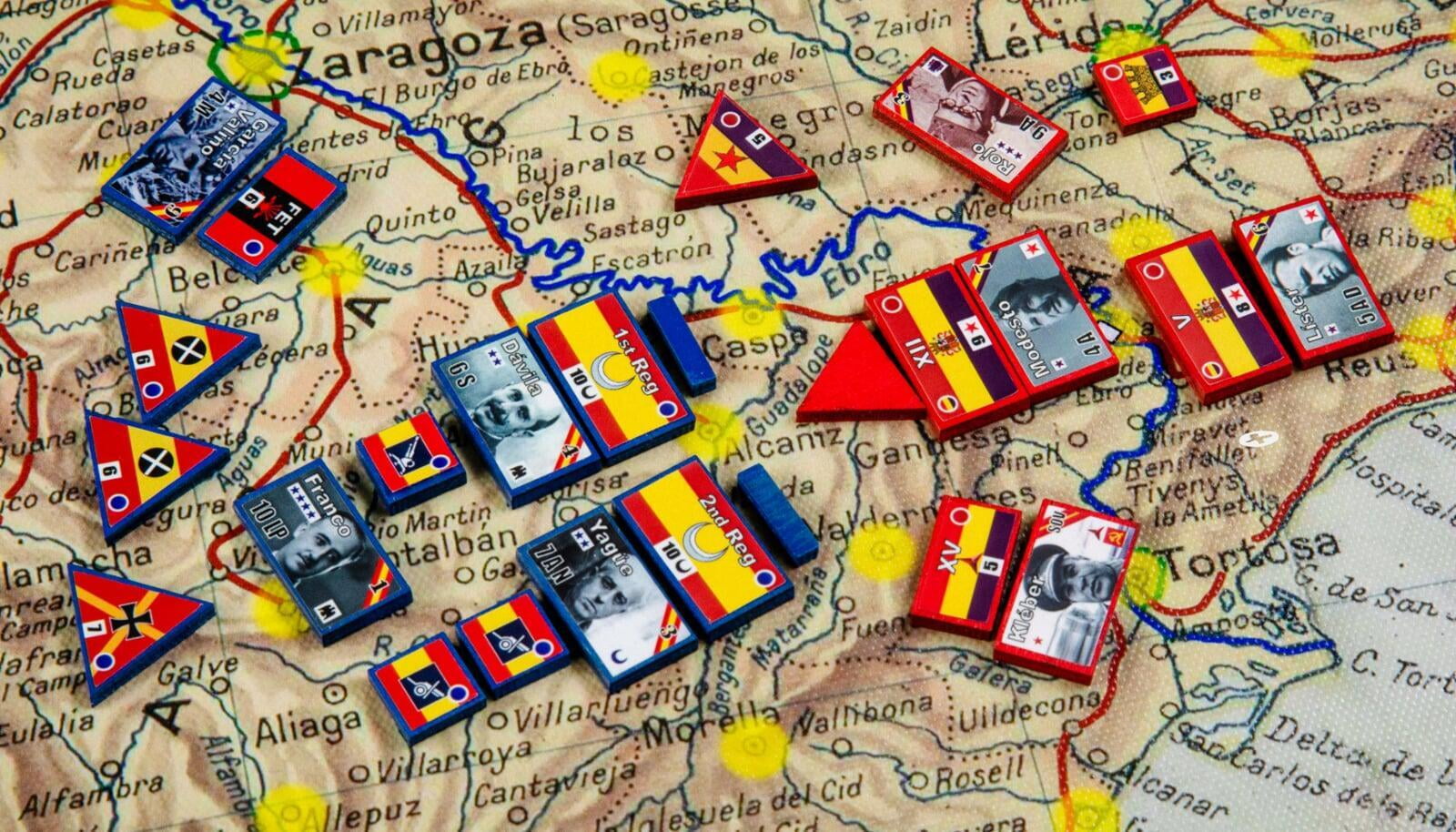
Here are just some of the units available for you to command.
| National Army | 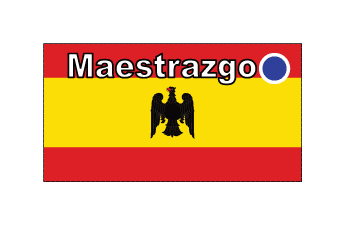 |
| Army of Africa | 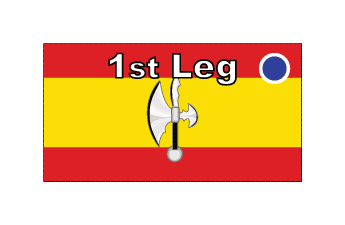 |
| Italian Corps CTV |  |
| Monarchist Requetes | 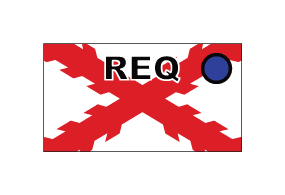 |
| Fascist Falangue | 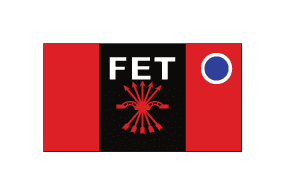 |
| Portuguese Viriatos | 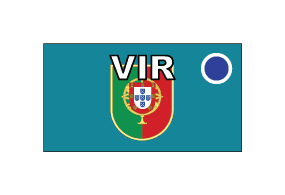 |
| Nationalist Tanks | 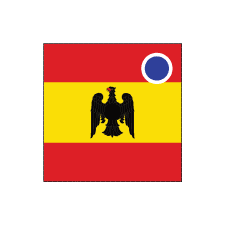 |
| Nationalist Aircraft | 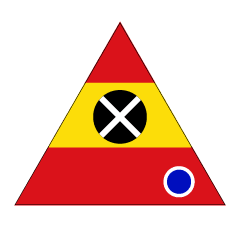 |
| Condor Legion | 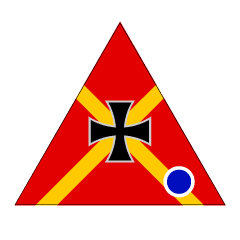 |
| German Tanks | 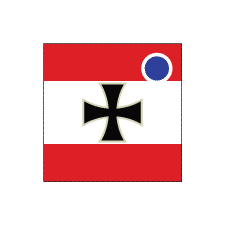 |
| Civil Guard | 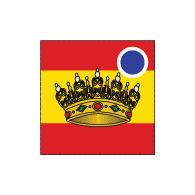 |
| Anti Aircraft |  |
| Battleship | 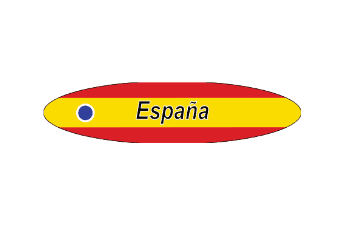 |
REPUBLICAN UNITS
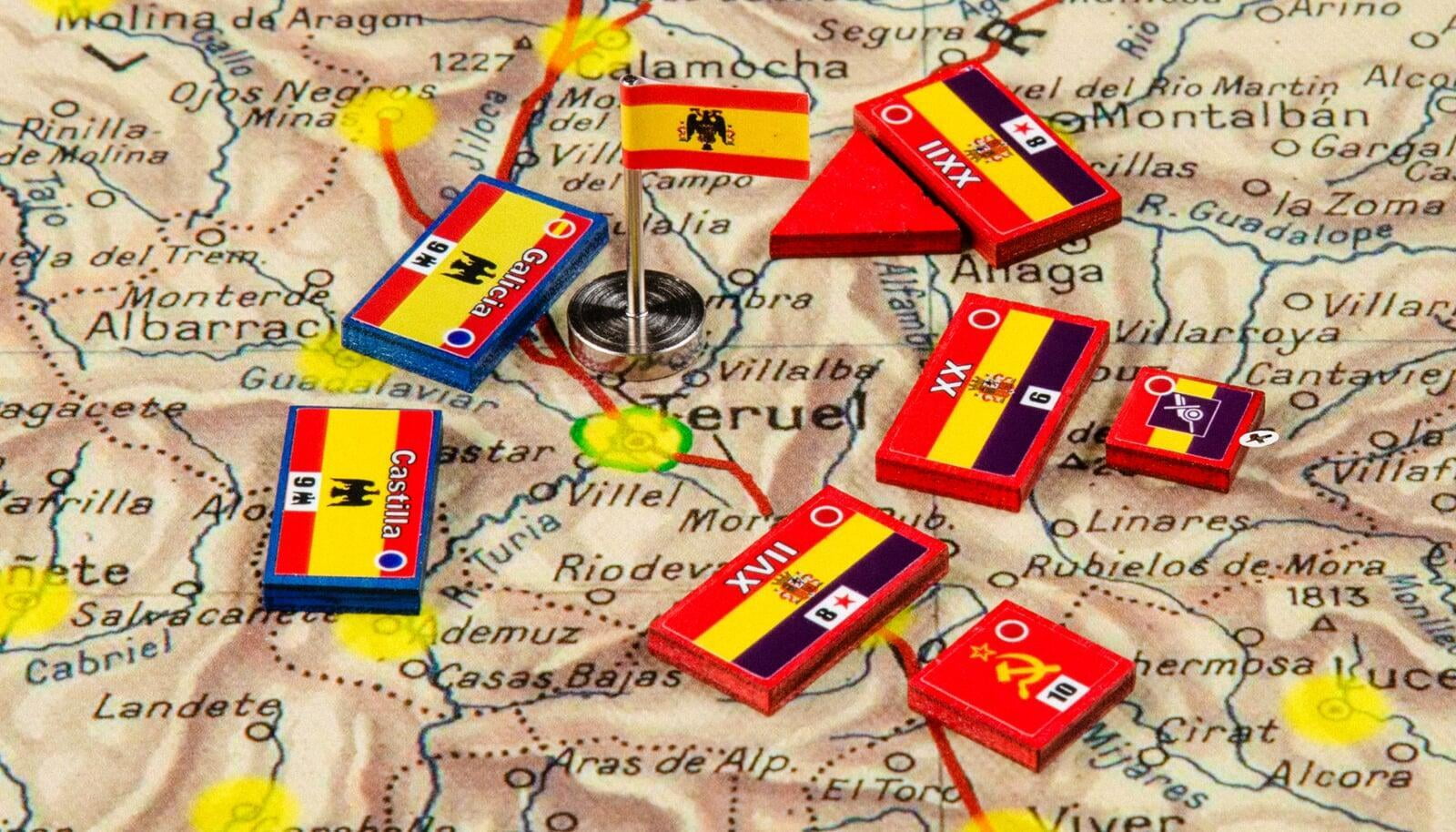
Here are just some of the units available for you to command.
| Popular Army | 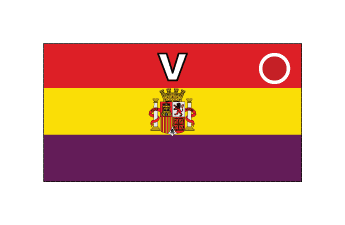 |
| Basque Nationalists | 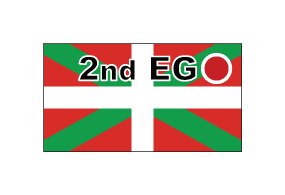 |
| Catalonian Army | 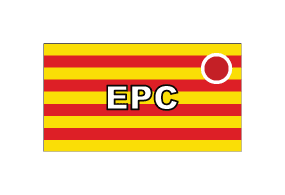 |
| POUM | 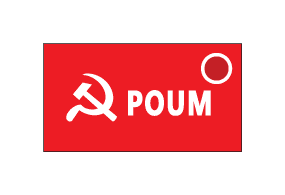 |
| PSUC |  |
| Popular Front | 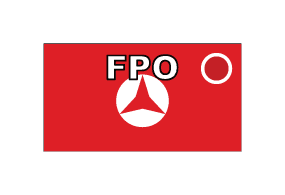 |
| CNT/FAI Unions |  |
| UGT Union | 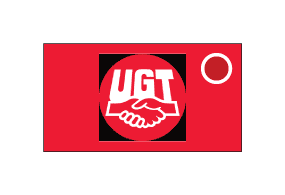 |
| International Brigades | 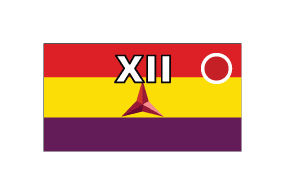 |
| Combat Engineers |  |
| Soviet Tanks | 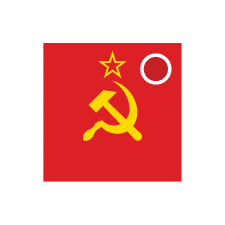 |
| Artillery |  |
| Republican Aircraft | 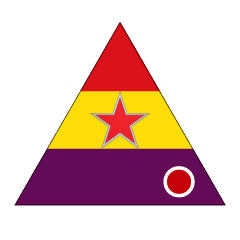 |
Historical Summary
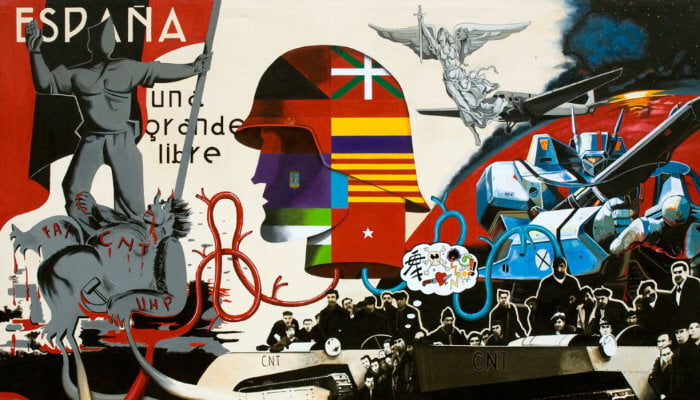
Betrayal and desperation. The hardest war Spain has ever faced.
The Spanish Civil War started as a coup d'état in July 1936, carried out by the Nationalist faction against the democratically established Second Spanish Republic (1931). The government was unable to fully coordinate the efforts of its political groups: anarchists, socialists, communists, and the Catalan and Basque autonomous regions.
The military "pronunciamento" developed into a civil war within a few weeks. The Nationalists were composed of the Spanish Confederation of Autonomous Rights (CEDA), monarchists, Carlists, and the Falange. They had no issue uniting in their "crusade to cleanse Spain" under a firm military command.
By a combination of cunning, opportunism and luck, General Francisco Franco soon became not only the commander in chief of the rebel army, but of the new Spanish State itself.
While the Republic was aided by the Soviet Union, Mexico and International Brigades from several democracies (including the United States, Britain, France and Canada), the Nationalist forces had the support of the Fascist governments of Nazi Germany and Italy.
The Nationalists carried out a lighting advance from the southwest of Spain early in the war, but failed to capture Madrid. The North fell in 1937 after an heroic resistance. General stalemate took root between the summers of 1937 and 1938. This was in part due to Franco’s cautious command and Republican military unprofessionalism. The Republic threw itself into a series of offensives, resulting in defeat or short-lived Pyrrhic victories. The Battle of the Ebro saw the loyalists bleed their remaining strike power and lose the initiative forever.
The military "pronunciamento" developed into a civil war within a few weeks. The Nationalists were composed of the Spanish Confederation of Autonomous Rights (CEDA), monarchists, Carlists, and the Falange. They had no issue uniting in their "crusade to cleanse Spain" under a firm military command.
By a combination of cunning, opportunism and luck, General Francisco Franco soon became not only the commander in chief of the rebel army, but of the new Spanish State itself.
While the Republic was aided by the Soviet Union, Mexico and International Brigades from several democracies (including the United States, Britain, France and Canada), the Nationalist forces had the support of the Fascist governments of Nazi Germany and Italy.
The Nationalists carried out a lighting advance from the southwest of Spain early in the war, but failed to capture Madrid. The North fell in 1937 after an heroic resistance. General stalemate took root between the summers of 1937 and 1938. This was in part due to Franco’s cautious command and Republican military unprofessionalism. The Republic threw itself into a series of offensives, resulting in defeat or short-lived Pyrrhic victories. The Battle of the Ebro saw the loyalists bleed their remaining strike power and lose the initiative forever.
With the fall of Catalonia in 1939, Madrid became isolated from Barcelona. The fascist Francoist regime was recognized by France and the United Kingdom before the war even came to an end, which took place in April 1939.

